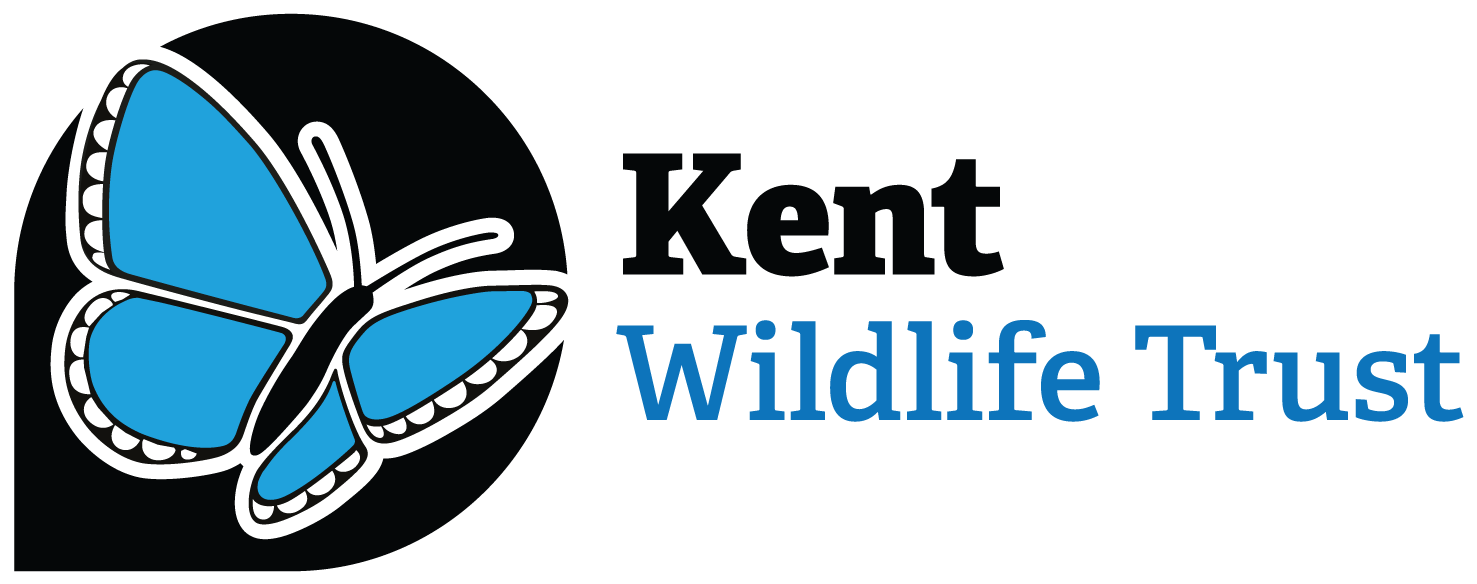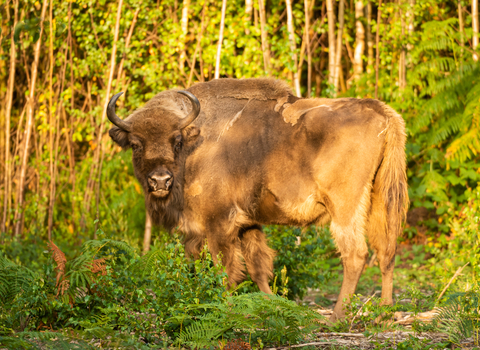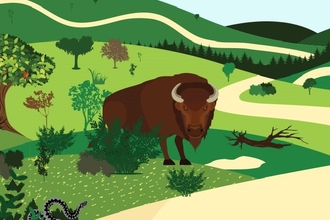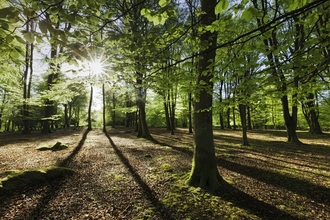Providing a natural solution to the climate and biodiversity crises
By giving nature the tools and space it needs to recover, we are hoping that by introducing ecosystem engineers, the abundance and biodiversity of the Blean will increase to levels beyond what human management can achieve, as well as helping to store carbon.
Frequently Asked Questions
Is this project a re-wilding project?
This project is not about 're-wilding', it's about ‘wilding’: introducing the right “ecosystem engineer" species to the environment to improve habitats naturally. Ecosystem engineers include beavers, wild pigs, wild horses, cattle and bison, whose natural behaviours replace human conservation management.
Is this a reintroduction project?
We have never called this a reintroduction project. We and our partners, including Natural England, have progressed this project on the basis of introducing a new mega-herbivore (bison) to bring much needed ecological dynamism into our woodlands.
Why not concentrate on converting the conifer forest to native woodland?
Wilding is a different approach to tackling the same problem.
We have been working to remove the non-native conifers for many years now. In the past, this has involved chainsaws and large pieces of machinery to remove large areas of trees at a time. This is far from ideal for wildlife. Bison can selectively fell trees and cause others to die back slowly, this is a much more natural approach which will maximise the opportunities for wildlife to flourish, creating a greater mosaic of habitats. It is also much more sustainable financially and reduces our carbon footprint. In order to maximise benefits to wildlife across a large area, we need to consider new ways of working, something we at Kent Wildlife Trust already know about from pioneering the country’s first beaver reintroduction project almost 20 years ago.
Wilding is about letting animals roam free and not intervening, but how will you make sure the animals are safe?
Animal welfare is a critical factor in this project. We are using robust animal monitoring practices based on international standards of best practice.
Wilding is indeed about being as hands-off with management as possible. Nevertheless, we do have a responsibility to our animals to ensure their welfare and that they are safe. We will have rangers dedicated to the monitoring of bison. Bison will have regular health checks by our trained staff, using a standardised best practice system in place across projects in Europe. These will be used to identify any illness or health issues that might require treatment. Any problems will be closely monitored and if an animal doesn’t show any signs of getting better, appears to be in pain, or has a low score on the health check system, it can be brought in, for veterinary observation, using special corral facilities on site.
Kent Wildlife Trust has been safely managing conservation grazing West Blean with horses and cows for many years. Wildwood Trust staff train for animal escapes regularly and they also have extensive experience of managing bison in a variety of settings. We have robust systems in place to ensure that animals are safe, well, and unlikely to ever want to escape this beautiful area. Nonetheless, we have all appropriate risk assessments and emergency procedures in place, so that specially trained teams can be deployed quickly to deal with an emergency, in the unlikely event that one does occur. We are also upgrading all the fencing infrastructure on the site including the entire boundary fence.
Disease transfer has been carefully considered and is a very low risk however through regular checks and health screening of animals we will make sure it stays that way.
Any grazing animal will be subject to strict disease screening and quarantine before being approved for use in the project. Wildwood Trust are very experienced in completing these processes to a high-quality and following best-practice standards and will continue to do so throughout the project.
Can't find the answer to your question?
If you have a question about Wilding and can't find the answer, please get in touch. You can also keep an eye out on our social media where we regularly post our expert Q&As.




